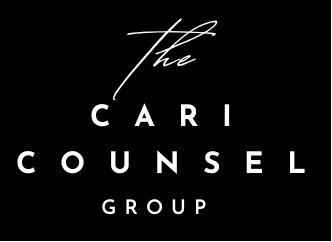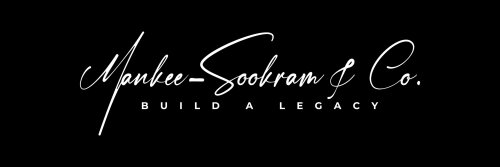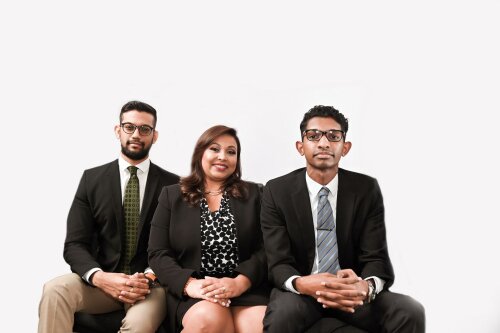Best Child Abuse Lawyers in Trinidad and Tobago
Share your needs with us, get contacted by law firms.
Free. Takes 2 min.
Free Guide to Hiring a Family Lawyer
Or refine your search by selecting a city:
List of the best lawyers in Trinidad and Tobago
About Child Abuse Law in Trinidad and Tobago
Child abuse in Trinidad and Tobago is recognized as any act that results in harm or potential harm to a child, including physical, sexual, emotional abuse, or neglect. The nation is committed to protecting children through robust laws and policies designed to prevent such offenses. The Children Act of 2012 is a significant piece of legislation aimed at safeguarding children's rights and welfare, ensuring that offenders are held accountable and victims are supported appropriately.
Why You May Need a Lawyer
People may require legal assistance in child abuse cases for various reasons. Victims or their guardians may need help understanding their rights and navigating legal processes to ensure justice and protection. Perpetrators accused of child abuse will need legal representation to defend themselves. Lawyers can assist in custody disputes involving accusations of child abuse or in reporting abuse to the authorities. Legal expertise is crucial when dealing with the complexities of family law, child protection services, and criminal justice systems.
Local Laws Overview
The key legislation in Trinidad and Tobago regarding child abuse is the Children Act, 2012, which consolidates and strengthens earlier laws. It sets out definitions of different types of abuse and the legal responsibilities of adults and institutions. The Act establishes measures for reporting suspected abuse, protocols for intervention, and guidelines for the care and rehabilitation of abused children. Other relevant laws include the Domestic Violence Act, which offers protection orders and the Sexual Offences Act, which outlines penalties for sexual abuse of minors. These laws collectively ensure a comprehensive legal framework to protect children from abuse.
Frequently Asked Questions
What constitutes child abuse in Trinidad and Tobago?
Child abuse can be physical, emotional, or sexual, and includes neglect. It is any action or inaction that causes harm, potential harm, or threat of harm to a child.
How does the law protect children in Trinidad and Tobago?
The Children Act, 2012, and related laws provide measures for protection, reporting of abuse, and legal actions against perpetrators. It ensures the welfare of children is of utmost priority.
What should I do if I suspect a child is being abused?
If you suspect child abuse, it is important to report it to the police or social services. You can also contact child protection agencies for guidance on how to proceed.
How can a lawyer help in a child abuse case?
A lawyer can provide legal advice and representation, assist in reporting abuse, help in court proceedings, and ensure that the rights of the victim are protected.
Are there any penalties for failing to report child abuse?
Yes, failing to report known or suspected abuse can result in legal consequences as mandated by the Children Act and other relevant legislation.
Can child abuse charges affect custody arrangements?
Yes, allegations or evidence of child abuse can significantly impact custody decisions made by the court, prioritizing the child's safety and well-being.
What is the role of child protection services?
Child protection services investigate reports of abuse, provide support to victims and their families, and work to ensure the child's safety through various interventions.
How long does a child protection investigation take?
The duration of an investigation can vary based on the complexity of the case, but authorities aim to conduct these processes as efficiently and thoroughly as possible.
What resources are available for victims of child abuse?
Besides legal recourse, victims can access counseling services, support groups, and rehabilitation programs offered by various governmental and non-governmental organizations.
Can anonymous reports of child abuse be made?
Yes, reports can be made anonymously, although providing contact information can assist authorities in further investigations.
Additional Resources
For those seeking help or more information on child abuse in Trinidad and Tobago, the following resources may be useful:
- The Office of the Prime Minister (Gender and Child Affairs)
- Child Protection Unit of the Trinidad and Tobago Police Service
- The Children’s Authority of Trinidad and Tobago
- NGOs such as ChildLine and the Coalition Against Domestic Violence
Next Steps
If you require legal assistance related to child abuse, consider taking the following steps:
1. Contact a qualified family law attorney with experience in child abuse cases to discuss your situation.
2. Gather any evidence or documentation that supports your case, including medical records, witness statements, and any correspondence.
3. Report the abuse to the relevant authorities if not already done.
4. Utilize available support services for emotional and psychological assistance.
5. Attend all legal proceedings and consultations with your lawyer thoroughly prepared.
Lawzana helps you find the best lawyers and law firms in Trinidad and Tobago through a curated and pre-screened list of qualified legal professionals. Our platform offers rankings and detailed profiles of attorneys and law firms, allowing you to compare based on practice areas, including Child Abuse, experience, and client feedback.
Each profile includes a description of the firm's areas of practice, client reviews, team members and partners, year of establishment, spoken languages, office locations, contact information, social media presence, and any published articles or resources. Most firms on our platform speak English and are experienced in both local and international legal matters.
Get a quote from top-rated law firms in Trinidad and Tobago — quickly, securely, and without unnecessary hassle.
Disclaimer:
The information provided on this page is for general informational purposes only and does not constitute legal advice. While we strive to ensure the accuracy and relevance of the content, legal information may change over time, and interpretations of the law can vary. You should always consult with a qualified legal professional for advice specific to your situation.
We disclaim all liability for actions taken or not taken based on the content of this page. If you believe any information is incorrect or outdated, please contact us, and we will review and update it where appropriate.
Browse child abuse law firms by city in Trinidad and Tobago
Refine your search by selecting a city.













